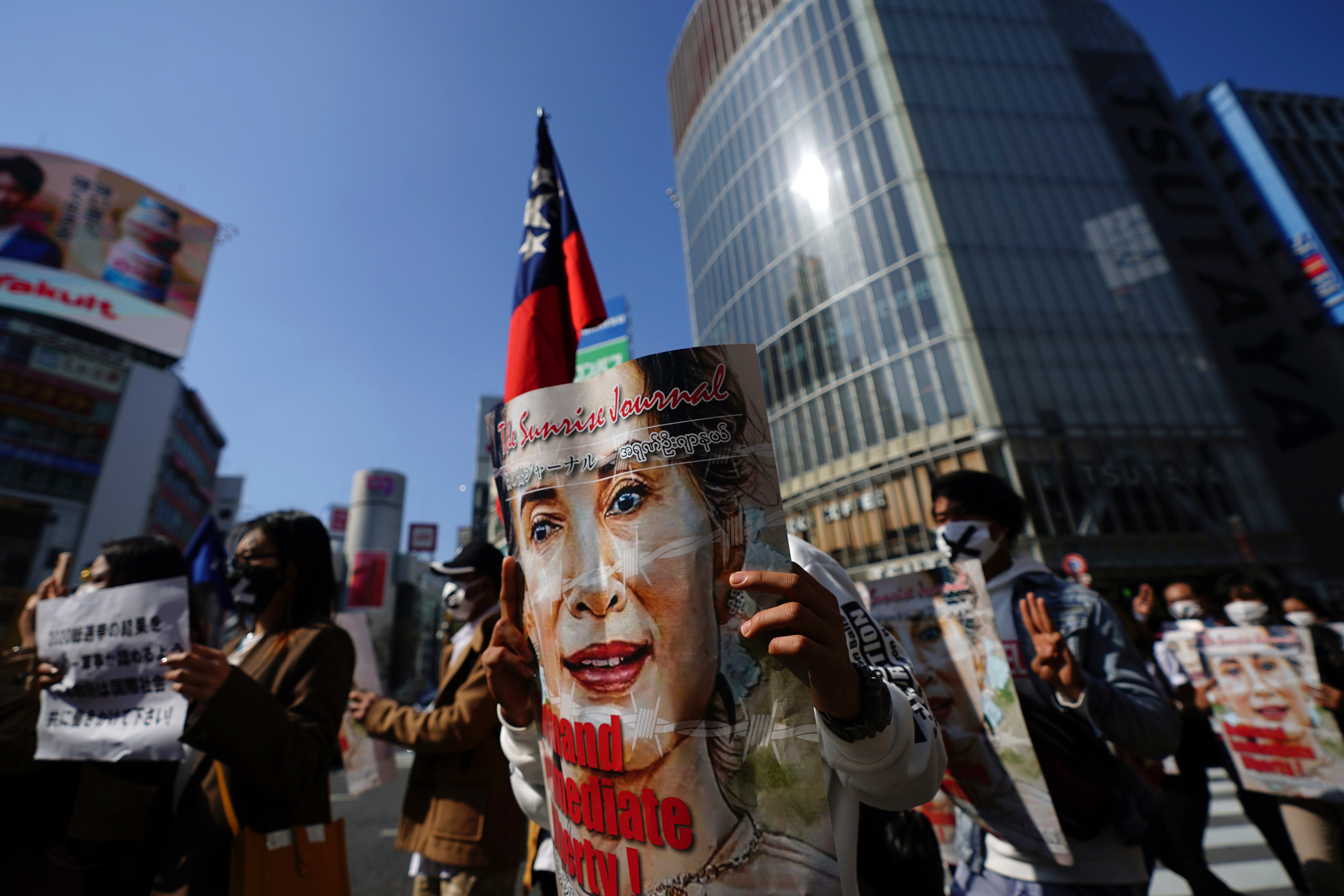Burmese in Japan march in protest of military coup
Thousands of people from Myanmar living in Japan have marched in downtown Tokyo to protest the military coup back home, some holding photos of ousted leader Aung San Suu Kyi and signs deploring the loss of human rights

Your support helps us to tell the story
From reproductive rights to climate change to Big Tech, The Independent is on the ground when the story is developing. Whether it's investigating the financials of Elon Musk's pro-Trump PAC or producing our latest documentary, 'The A Word', which shines a light on the American women fighting for reproductive rights, we know how important it is to parse out the facts from the messaging.
At such a critical moment in US history, we need reporters on the ground. Your donation allows us to keep sending journalists to speak to both sides of the story.
The Independent is trusted by Americans across the entire political spectrum. And unlike many other quality news outlets, we choose not to lock Americans out of our reporting and analysis with paywalls. We believe quality journalism should be available to everyone, paid for by those who can afford it.
Your support makes all the difference.Thousands of people from Myanmar living in Japan marched in downtown Tokyo on Sunday to protest the military coup back home some holding photos of ousted leader Aung San Suu Kyi and signs deploring the loss of human rights.
The gathering, which started in a park and trailed through busy streets, thronged by police, was the latest in a series of protests in a nation that more than 33,000 Burmese have made their home.
“I don’t like the military government,” said Sum Lut Htu Ti, a restaurant worker who has lived in Japan for three decades.
She was marching in a large contingent of the Kachin ethnic group, wearing colorful traditional clothing.
“I want to fight with her,” she said of Suu Kyi, the nation's de facto leader who remains in detention following the Feb. 1 coup.
The recent demonstrations in Tokyo appear to be growing, drawing more people each time. A few days ago, they gathered holding artificial candles and glow sticks in an evening vigil.
Sunday’s gathering also drew some Japanese protesters, including representatives from labor unions, who shouted slogans demanding freedom for Suu Kyi and promised solidarity.
They said they hoped the Japanese government and people would try to help Myanmar by rejecting and putting pressure on the junta, including with economic sanctions.
Win Kyaw and his wife Ma Thida, both wearing the symbolic protest color of red, said they joined because they were worried about what they saw as the increasing violence in Myanmar.
Ma Thida, who held a framed portrait of Suu Kyi, pointed to the flowers in her own hair, noting she was wearing them proudly in her honor.
“Just like those in Myanmar, we outside the country feel the same way and want to send our message,” said Win Kyaw, who has lived in Japan for 33 years and works at a restaurant.
He said people in Myanmar live in fear, unlike in Japan, which he said he likes because it is peaceful and has a democratic form of government.
“The longer I live in Japan, I hope more than ever for my country to become like Japan,” he said.
___
Yuri Kageyama is on Twitter https://twitter.com/yurikageyama